Investigative Strategies for Crypto Crime: 3 Key Webinar Takeaways

Identify suspicious transactions, prevent fraud & comply with AML, KYC & CFT regulations
Forensically analyze cryptocurrency transactions, track stolen funds, and investigate crime

Perform due diligence, flag risky transactions & generate risk reports

Training and certification for compliance & investigation teams
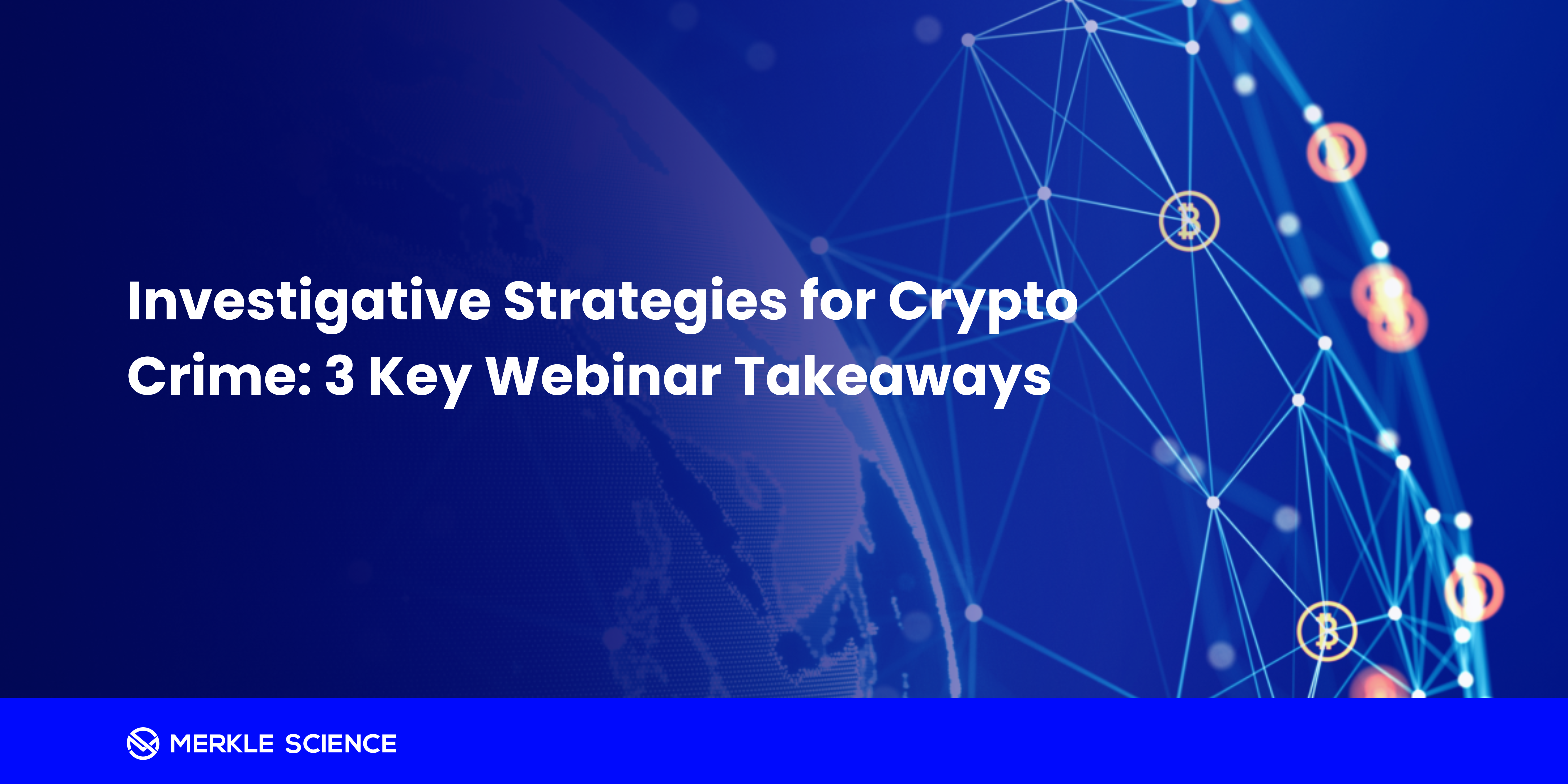
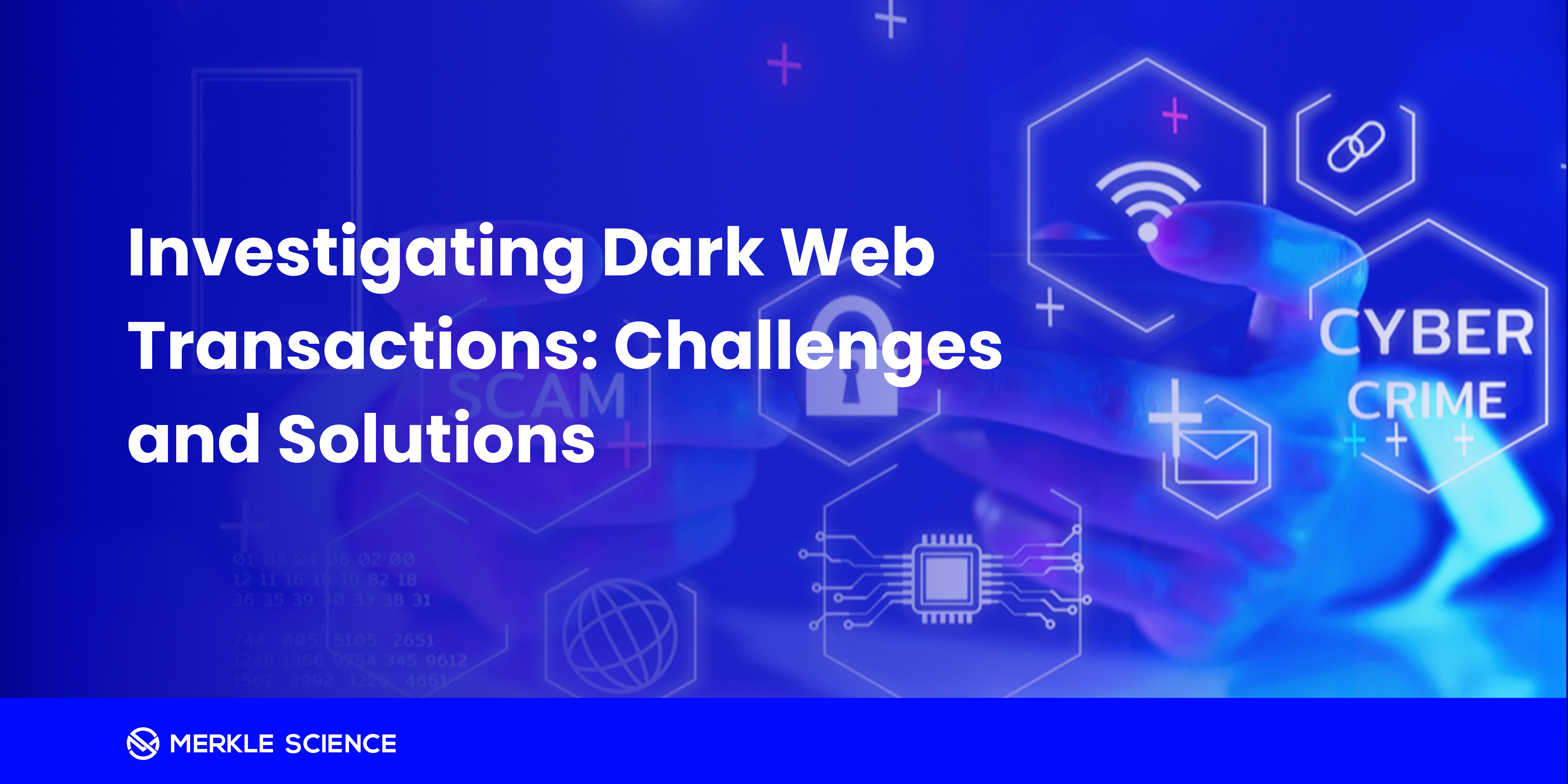
If you are reading this blog, you are likely doing so on the surface web (also known as the visible web), the part of the internet that is publicly available and indexable by search engines. The counterpoint to the surface web is the dark web, which is only accessible via specialized tools like the Tor Browser.

The U.S. Department of State in collaboration with the U.S. Department of Justice, the Federal Bureau of Investigation, the United Kingdom’s National Crime Agency, the Australian Federal Police, and other international partners, have taken a significant step against the infamous LockBit ransomware group. On May 7th, 2024 the United States designated Dmitry Yuryevich Khoroshev as the leader of LockBit and offered a reward of up to $10 million for information leading to his arrest or conviction.
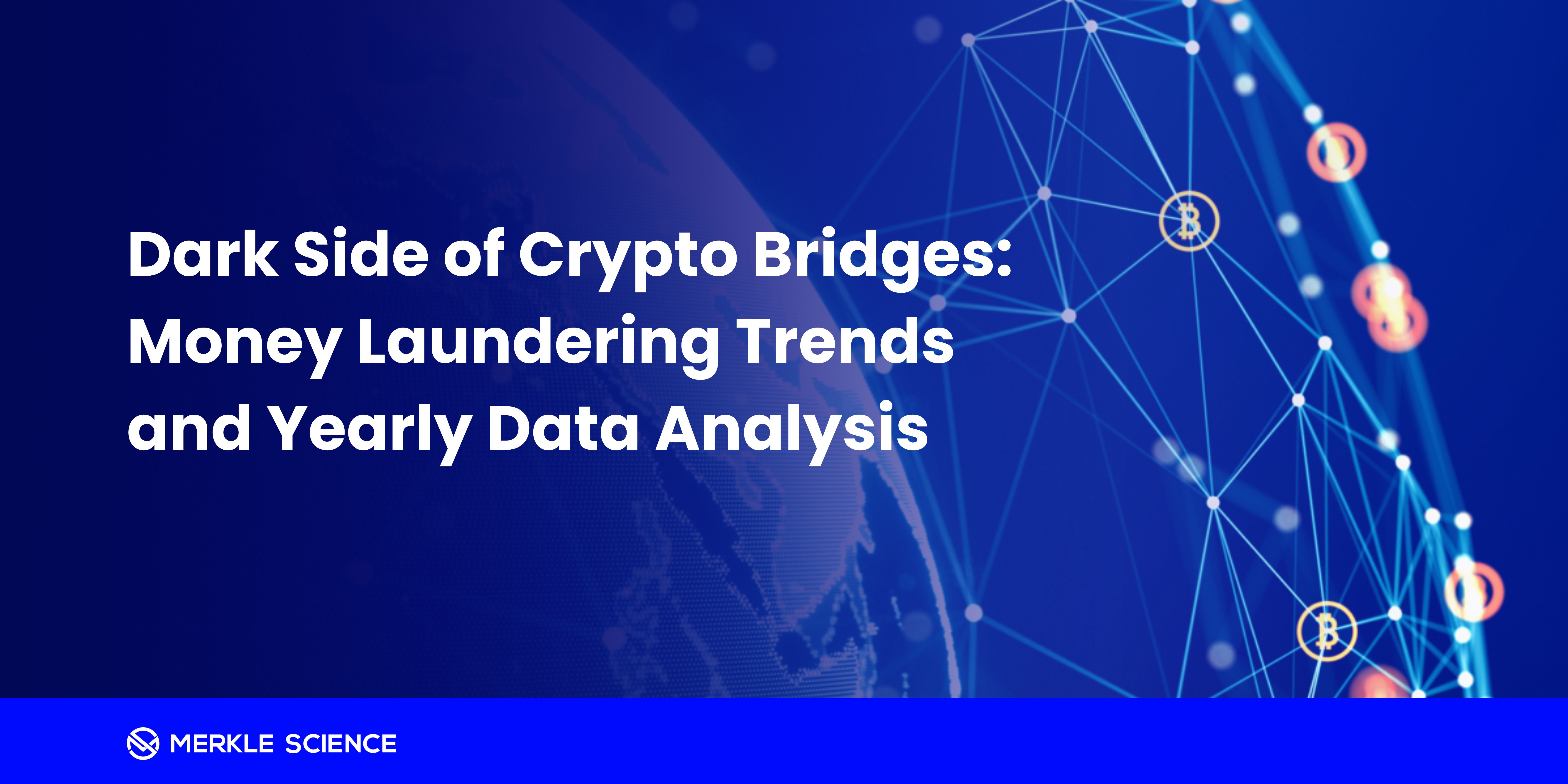
The rise of crypto bridges has opened up new avenues for financial transactions. However, with this innovation comes the dark side of money laundering, posing a significant challenge for law enforcement agencies and regulators. In this blog, we delve into the world of crypto bridges, exploring the insidious trends of money laundering and providing a detailed analysis of yearly data up to 2023.

Merkle Science is pleased to announce the addition of Richard Reinhardt and Ryan Gray to lead its expansion into U.S. federal, state, and local law enforcement agencies. Richard Reinhardt joins Merkle Science as Lead Investigator and Ryan Gray joins the company as Account Executive. These strategic additions reinforce Merkle Science's renewed commitment to serving Public Sector customers.

On 18th October 2023, the U.S. Department of the Treasury’s Office of Foreign Assets Control (OFAC) announced that it has imposed sanctions on ten Hamas members, operatives, and financial facilitators, including a Gaza-based money services business (MSB), Buy Cash Money and Money Transfer Company. Additionally, a terrorist-linked Bitcoin address was also sanctioned (19D1iGzDr7FyAdiy3ZZdxMd6ttHj1kj6WW) thathas received a total of $288,380,277 so far.

On October 17, 2023, Binance blocked 100 accounts linked to Hamas, the terrorist group that launched a surprise attack on Israel. This action comes on the heels of blocking 190 accounts also linked to Hamas just one week earlier. These actions rightfully drew concern from the media and public: To what extent are terrorist groups in general and Hamas in particular transacting with cryptocurrency?
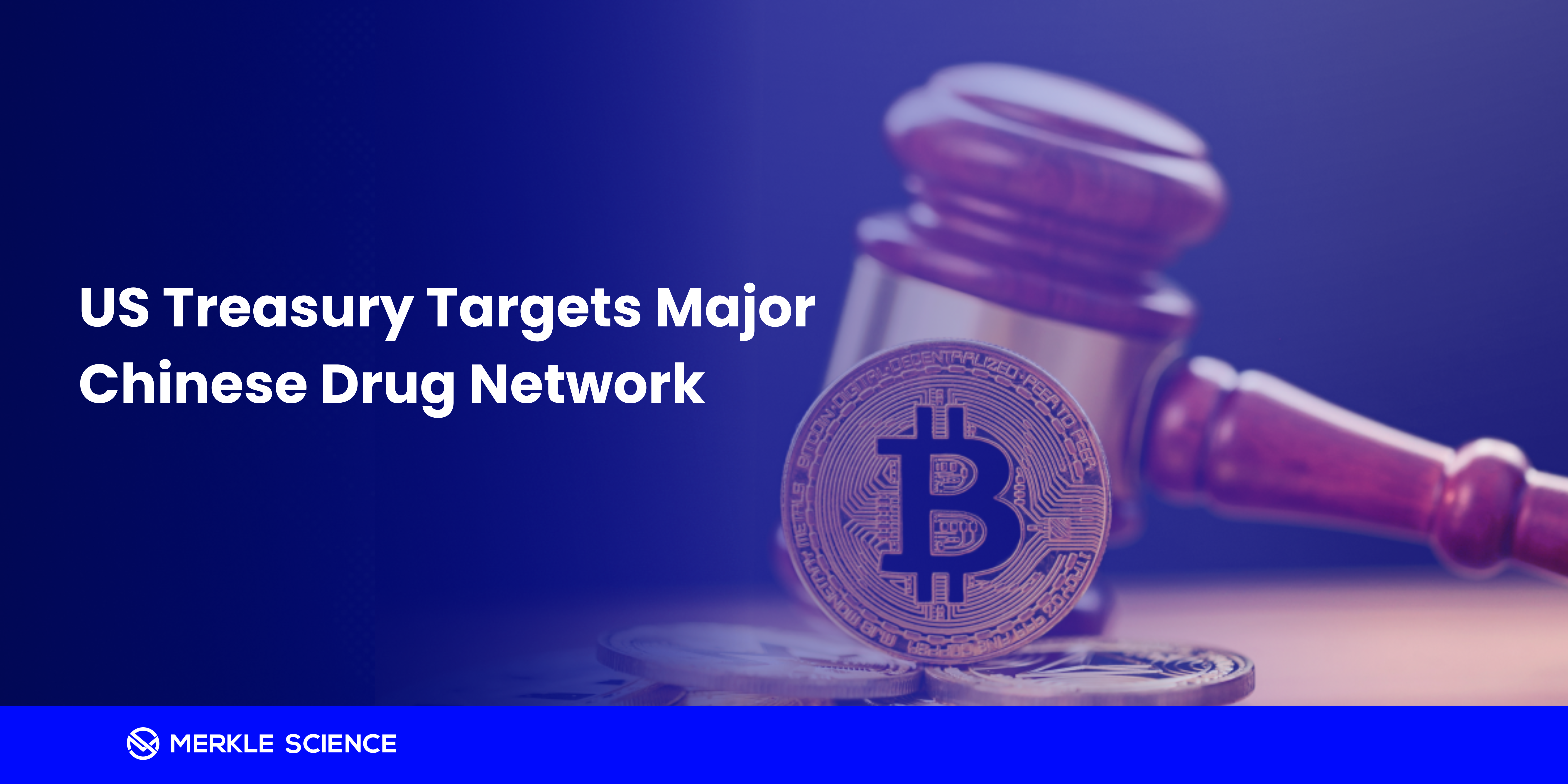
The Office of Foreign Assets Control (OFAC) has once again taken rigorous steps to combat drug trafficking fueled by virtual currencies. In a recent enforcement action, OFAC imposed sanctions on 28 individuals and entities implicated in the global proliferation of illegal narcotics. Notably, among these targets is a China-based network responsible for the large-scale production and distribution of substantial quantities of fentanyl, methamphetamine, and MDMA precursors. Moreover, they also added 17 virtual currency addresses to its Specially Designated Nationals List (SDN).

When it comes to freezing illicit funds related to crypto-related crime, authorities in the United Kingdom (UK) have their hands tied. To perform this action, the suspects must already be in custody, or already convicted of a crime.
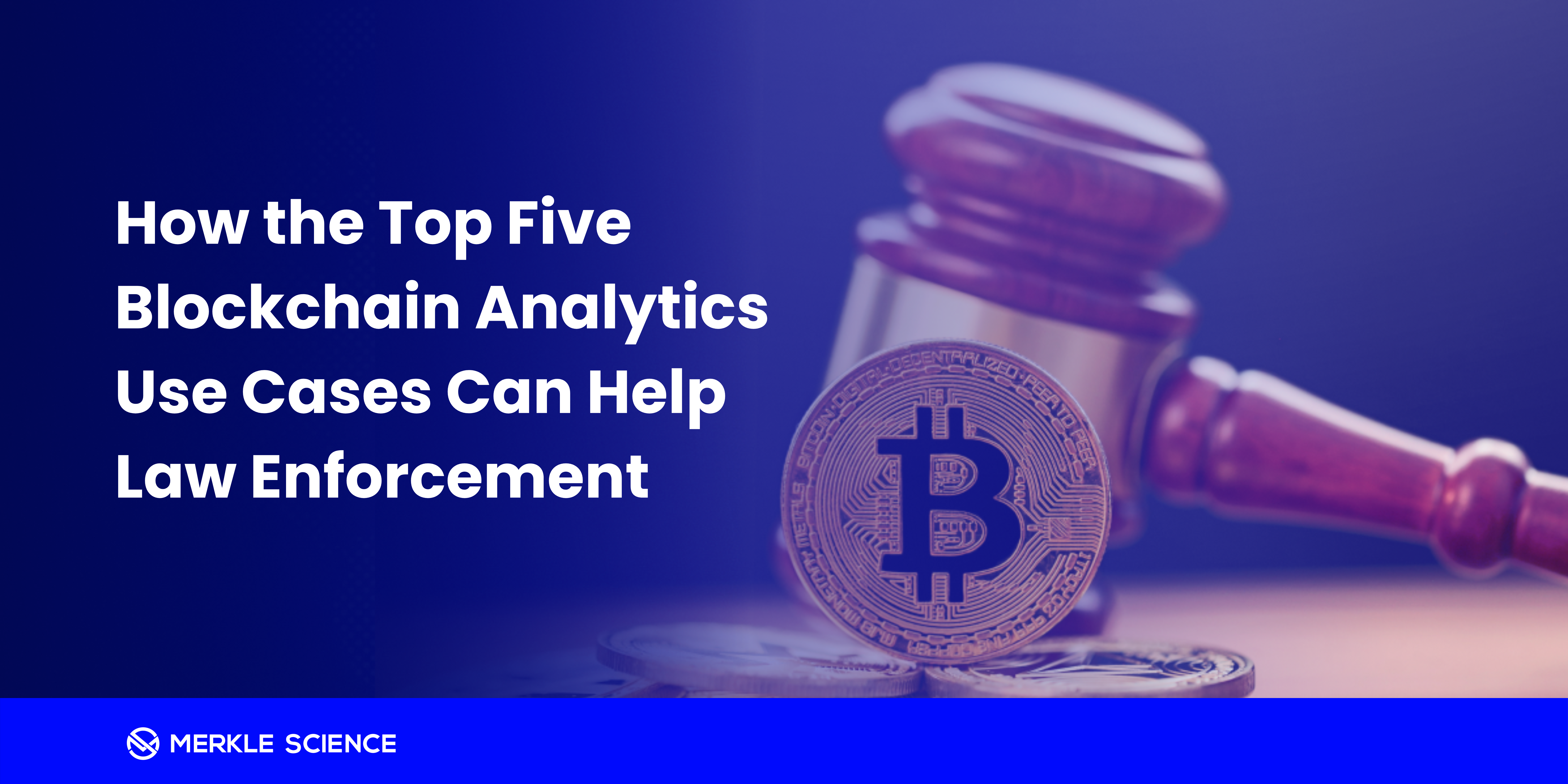
In 2022, victims of cryptocurrency hacks collectively lost over $3.9 billion. Compared to other crimes, such as vehicle theft, most victims of cryptocurrency schemes will never recover their assets again.